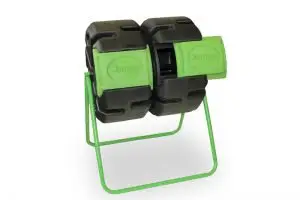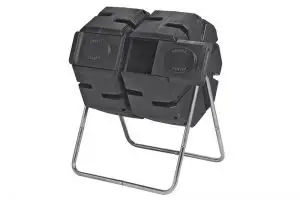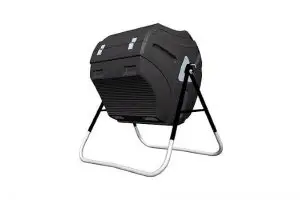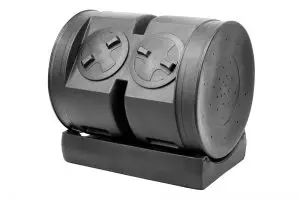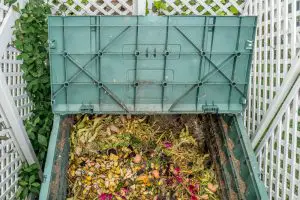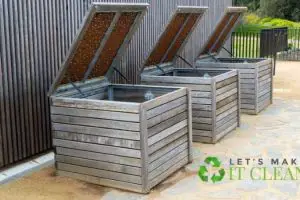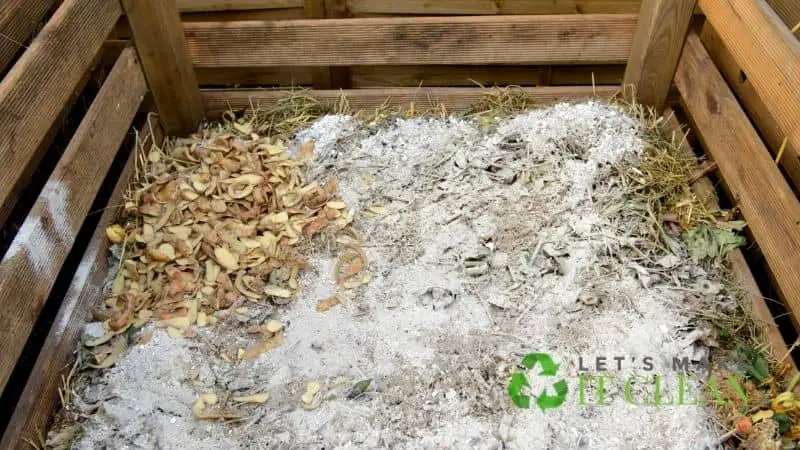If you have access to coffee grounds, there is a better way to reuse them instead of letting them end at the landfill, which is not good for the environment.
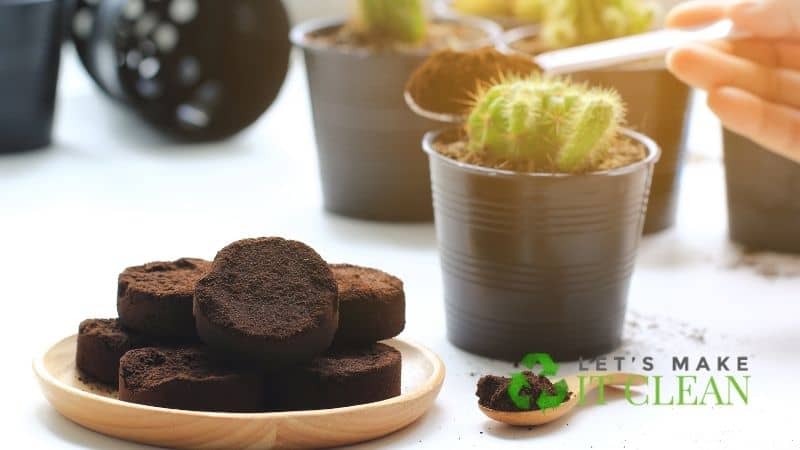
Coffee grounds are vital ingredients in composting as they help in balancing the nitrogen to carbon ratio. If you deal with acid-loving plants, fresh grounds are a perfect choice as they are acidic.
Quick Navigation
Do you have a pot of morning coffee daily? Or have you realized your local coffee shop is putting away lots of coffee grounds?
If yes, then you have an excellent source of organic matter.
But, aren’t coffee grounds famous for their high acid levels? If you use coffee grounds, what value do they add to your compost pile? Does using coffee grounds discourage some diseases from your garden, and do they kill slugs?
These questions and more have been confusing to gardeners for the longest time. The internet has lots of advice for and against the use of coffee grounds.
Some articles say that coffee grounds are an excellent choice for acid-loving plants like azaleas, and others say they are an excellent addition to the soil and earthworms.
With so much contradicting information, should you go for, or avoid coffee grounds?
Is Coffee Ground Composting Good?
When making a compost pile to use in your gardens, you need two types of materials: green and brown compost material.
Green materials are rich in nitrogen while brown material is rich in carbon. To have a healthy compost pile, you need to have a balance between nitrogen and carbon.
Used Coffee Grounds in Your Compost Pile
So, are coffee grounds rich in nitrogen or carbon?
Used coffee grounds, irrespective of their color, are green compost materials. That means they are rich in nitrogen. The used coffee grounds contain 1.45% nitrogen. They also contain other minerals such as calcium, potassium, magnesium, etc.
Other nitrogen ingredients for your compost pile include food scraps, grass clippings, and other green plants. Coffee grounds composting is effective if you combine the grounds with brown material such as shredded newspaper and dry leaves.
Too many green materials will make your compost pile smelly, while the lack of it makes the compost pile not to heat up.
Which Plants Like Coffee Grounds?
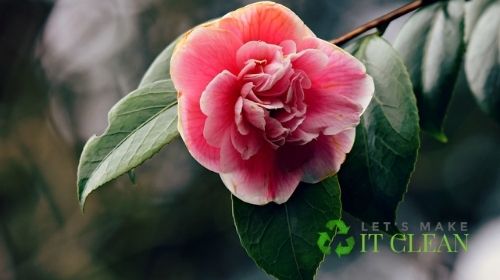
Used coffee grounds are slightly acidic. On the other hand, fresh, unbrewed coffee grounds contain more acid.
As such, fresh coffee grounds are an excellent choice for your acid-loving plants such as azaleas, lily of the valley, carrots, blueberries, and hydrangeas.
However, it would help if you avoided coffee grounds in the garden area where you have tomatoes as they don’t like the fresh coffee grounds.
It would be best if you also were careful while using fresh coffee grounds around pets and wire terrier as the fresh grounds still contain their caffeine content, and they are also acidic.
Do Coffee Grounds Kill Worms in the Compost?
If you have a compost bin, you should add coffee grounds every week as worms love coffee grounds. However, you shouldn’t add too much of the coffee grounds at once as the acidity may make the worms uncomfortable.
Instead, you should have a cup or so of the coffee grounds in a week for a small worm bin.
If you want to attract more earthworms to your garden, you should add coffee grounds mixed with soil as fertilizer to your garden. This will attract earthworms, which are essential in burrowing and aerating the soil.
Do you have nagging garden pests such as slugs and snails in your garden?
Used coffee grounds may be just what you need to keep them at bay. However, the method is not scientifically proven by researchers, and you should have a backup plan if it doesn’t work.
As far as disease suppression in your garden is concerned, used coffee grounds discourage fungal wilts and rots such as pythium, fusarium, and sclerotinia. You can use as little as 0.5% of the coffee grounds in your compost pile to achieve the disease-fighting effects.
How Do You Compost Coffee Grounds?
Instead of becoming waste at the landfill, the coffee grounds become useful for gardening as they help add nutrients to your soil.
The best thing is that composting coffee grounds is not hard. It is as simple as putting the coffee grounds in your compost pile. You can also use coffee filters in your compost pile.
If you practice worm composting, coffee grounds make excellent food for the worms. You only use it in moderation so that the acidity doesn’t make the worms uncomfortable.
Note that you should maintain a balance with brown material for healthy compost as you compost coffee grounds. The brown materials such as dry leaves provide a carbon balance, which also prevents a bad smell from the compost.
How to Use Coffee Grounds in Your Garden
How can you use the coffee grounds in your garden? You can cultivate the coffee grounds directly into the soil or spread them on the soil.
You should make an effort, so the grounds don’t become dry. If they become dry, they may repel water just like peat moss, which is not good for the essential water retention in the soil.
Thus, if you spread the grounds on the soil, you should cover them with compost, leaves, or bark mulch.
Note, coffee grounds are not nitrogen fertilizer. In a germination test, you can mix coffee grounds with potting soil in a ratio of 25% volume. The lettuce seeds with coffee grounds will show stunted growth compared to lettuce seeds without the grounds.
As such, if you are using them in gardening, you should also add nitrogen fertilizer. Otherwise, your plants may suffer from stunted growth.
The coffee grounds encourage the growth of microorganisms that use nitrogen for growth and reproduction. As the microorganisms break down the grounds, more nitrogen is released into the soil, which is an essential mineral for your plants.
You should add paper filters to the compost pile to offer a carbon balance. If you wish to speed up the decomposition process, tear the papers into small pieces.
Can You Put Too Many Coffee Grounds in Compost?
Adding too many coffee grounds to your compost is not the best practice.
Apart from being a good source of nitrogen nutrients, coffee grounds are acidic, which can prevent the pile from heating up enough for composting to take place.
Conclusion
Even if you are a gardening pro, new information and gardening tips are welcome anytime.
So, are coffee grounds good for composting? Yes, they are.
They are a rich source of nitrogen, which is essential in plant growth. Additionally, coffee grounds are food for the red wigglers if you practice worm composting.
If you use them in the garden, they attract earthworms that are good at burrowing, which aerates the soil and carries organic matter underground. Coffee grounds are also effective in aiding water retention.

